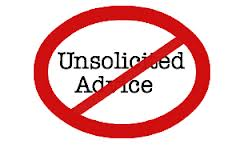Those of us in the northern climates are enjoying the annual fall display. For me, it is a reminder of the cyclicality of life and of business. Time to reflect on what has passed, celebrate our successes and remind ourselves that whatever may have been our failures, we get an opportunity in the new year to begin again.
In my experience, putting some intentionality, around what I want to happen, ups my chances of being able to look back at this time next year and notice and measure progress and success. With that in mind, I offer these questions to consider before the year comes to an end:
- What was one significant 2015 accomplishment?
- Have I articulated my vision for my team and have I validated that everyone knows what it is?
- What is our theme for 2016?
- What are our specific business objectives for 2016?
- What are the specific initiatives (action items) for achieving these objectives?







 The initial results of my Pivot are excellent. I feel I have much greater clarity regarding the next 3-5 years..
The initial results of my Pivot are excellent. I feel I have much greater clarity regarding the next 3-5 years.. 